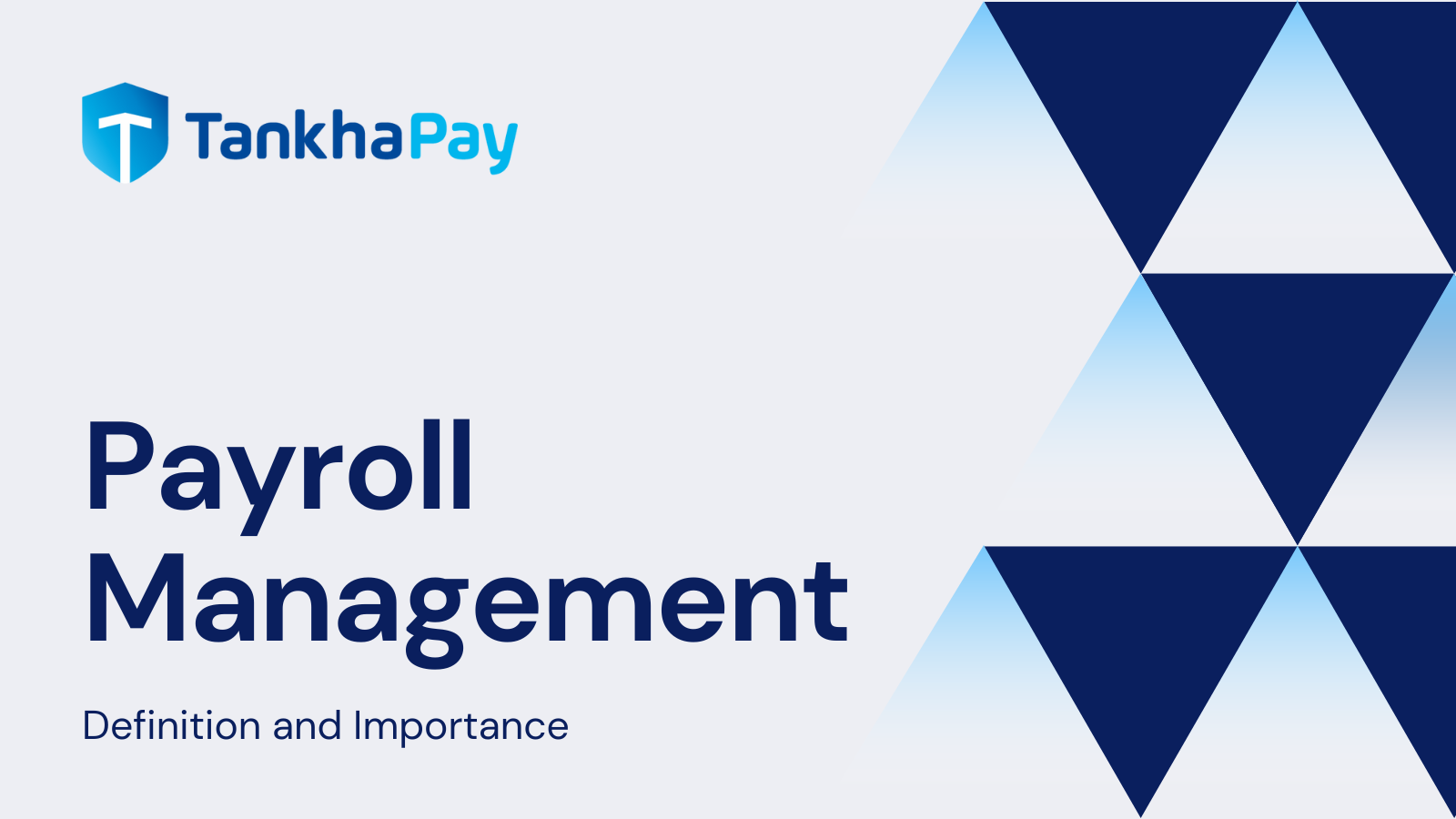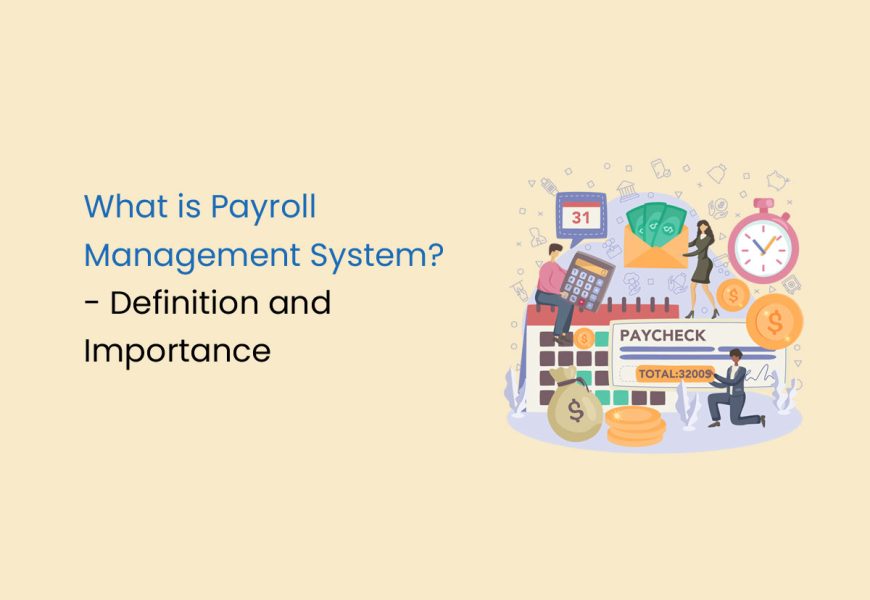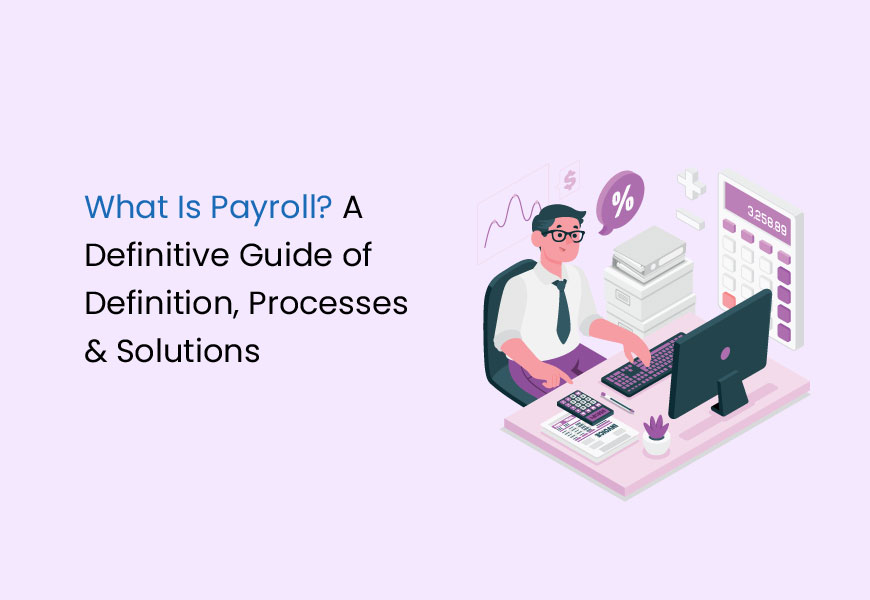
When you think about what really runs a business, payroll might not come to mind first. But if there’s one function that determines whether your employees feel valued, whether your company stays in compliance, or whether your bottom line thrives, it’s payroll management.
Let’s face it: Payroll is probably the most boring function in an organization. Its work cannot compare with the bright lights of marketing or the business acumen of sales, but it definitely makes up for this with power: Payroll management is quietly ensuring employees are satisfied, complaint-free, and active while generating business efficiency.
So, what makes payroll so critical yet so often overlooked? Let’s take an unconventional look at how payroll management plays a much more profound role in shaping company culture, fostering growth, and boosting overall business performance.
Payroll Management – The Real Employee Engagement Tool
When you think about employee engagement, you might immediately think of team-building activities, fancy office perks, or motivational speeches. But the truth is, one of the most powerful ways to engage your workforce is by paying them correctly, on time, and without drama.

Think about it: Employees don’t care how many snacks are in the breakroom or how cozy the office chairs are if their paycheck is late or incorrect. Payroll happens to be the one department that touches every single employee in the company and is, thus, a critical driver of employee satisfaction. According to a study conducted by Workforce Institute, an astonishing 49% of employees say they would leave their jobs if errors occurred regularly with payrolls. On the other hand, 88% of the employees believe that being paid correctly speaks to the professionalism of a company.
In short, it makes the employees feel trusted, it gives a boost to the morale of the employees, and it simply makes the employees feel like they belong to something reliable.
And so, yes, no matter how good your company’s pizza parties are or how fabulous your yoga classes are, payroll will still be the deciding factor that breaks or makes the engagement level of the employees.
Payroll – The Ultimate Business Intelligence Tool
This really interesting thing about payroll process management is that it’s not just paying people but actually is a goldmine of business intelligence. Done right, the data you get from payroll will tell you things about the overall health and efficiency of your company.

You think about payroll management as a rich source of data about employee compensation, overtime, and benefits usage, but even about absenteeism. Analysis over time will reveal key trends in business performance:
Which departments are most prone to overtime? Are certain teams working longer hours than others? This could signal underlying inefficiencies or the need for additional staffing.
Who are the beneficiaries of your benefit? Look at who is utilizing your health care, time-off benefits, or retirement benefit packages to hone those offerings.
Trends in Turnover and Retention: Payroll data may reflect turnover trends, for example, everyone quitting right before bonus payouts or just after receiving a pay raise.
Payroll does not track only the money, but from a business intelligence lens, it tracks the pulse of the organization. Unlock insights that can lead to smarter decisions and facilitate growth, hence saving on costs and increasing productivity.
The Employee Experience
We all know that employees are individuals with unique needs and life situations. One of the most personal experiences an employee can have is the way they interact with payroll. When payroll runs smoothly, employees feel taken care of. But at times of error—be it delay, wrong deduction, or even a lack of transparency-it brings emotional pain and irritation.
This is where empathy comes in. It’s not just about accuracy with a payroll process; it’s about creating an experience that feels personal and supportive.
Payroll Automation: A Revolution in Efficiency and Accuracy
Today, payroll automation tools change the way businesses approach payroll by making it efficient, accurate, and scalable.
It’s this: automation gets rid of friction.
This one just removes duplicate work, avoids human mistakes, and places them in the real-time on employee pay information. And in automated tax calculation, direct deposit, and self-service portals, payroll automation really helps in freeing up the precious time for HR teams who spend their hours on strategic rather than just administrative tasks.
Besides that, automation tools usually come with compliance features built in, so businesses are always updated on the changing tax laws and labor regulations. This software will do the task for you, ensuring that your payroll process is in accordance with the latest legal requirements.
Simply put, payroll automation is more about speeding things up, but rather than making something faster, the system runs automatically in the background while valuable resources can focus on innovation and growth.
Payroll and Company Culture: More Connected Than You Think
This might come as a surprise to you: payroll directly affects company culture.
Such a company proves it takes care of its payroll; otherwise, it is considered as having respect for the time and effort of the employees in the workplace. In turn, this helps create an environment of respect and openness, while a company with issues of payroll creates a culture of mistrust and skepticism.
Effective payroll management reflects the seriousness of the company towards financial well-being for the employee. This sends a message saying, “We care for you to be properly paid and in time for the work you do.” A basis of trust like this helps to strengthen company culture, loyalty, and employee morale even further.
Payroll Management in the Future: From Data to Diversity
Payroll management will continue to be in line with the changes that businesses bring along.
Future payroll is no longer just about paying the employee but encompasses data integration, diversity, and inclusion. In an increasingly aspirational world, organizations are using payroll systems to create diverse, inclusive workplaces by tracking pay equity, promoting diversity in compensation, and ensuring fair pay practices.
The payroll platforms will be innovative in the next years with deeper insight into the compensation of employees, easily achieved by organisations towards diversity goals and fairness. Additionally, with the rise of remote and hybrid work models, payroll management will evolve to accommodate complex international tax laws, multiple currencies, and cross-border payroll issues.
Conclusion
At the end of the day, payroll is more than just a financial process. It is a tool that helps drive business success and influences the company culture as well as satisfies employees. Payroll management cuts across automation, compliance, employee engagement, and business intelligence.
If payroll management is running like clockwork, then it’s possible for your business to focus on what truly matters: growth, innovation, and the development of a strong, happy workforce. Recognizing the true value of payroll will unlock its potential as a powerful, strategic asset—not just a back-office function. After all, a business paying attention to payroll in all its multifaceted details is a business which values its employees – and a business that values its employees is a successful one.
Read Also – Appointment Letters: Meaning, Elements, Types, and FAQs





